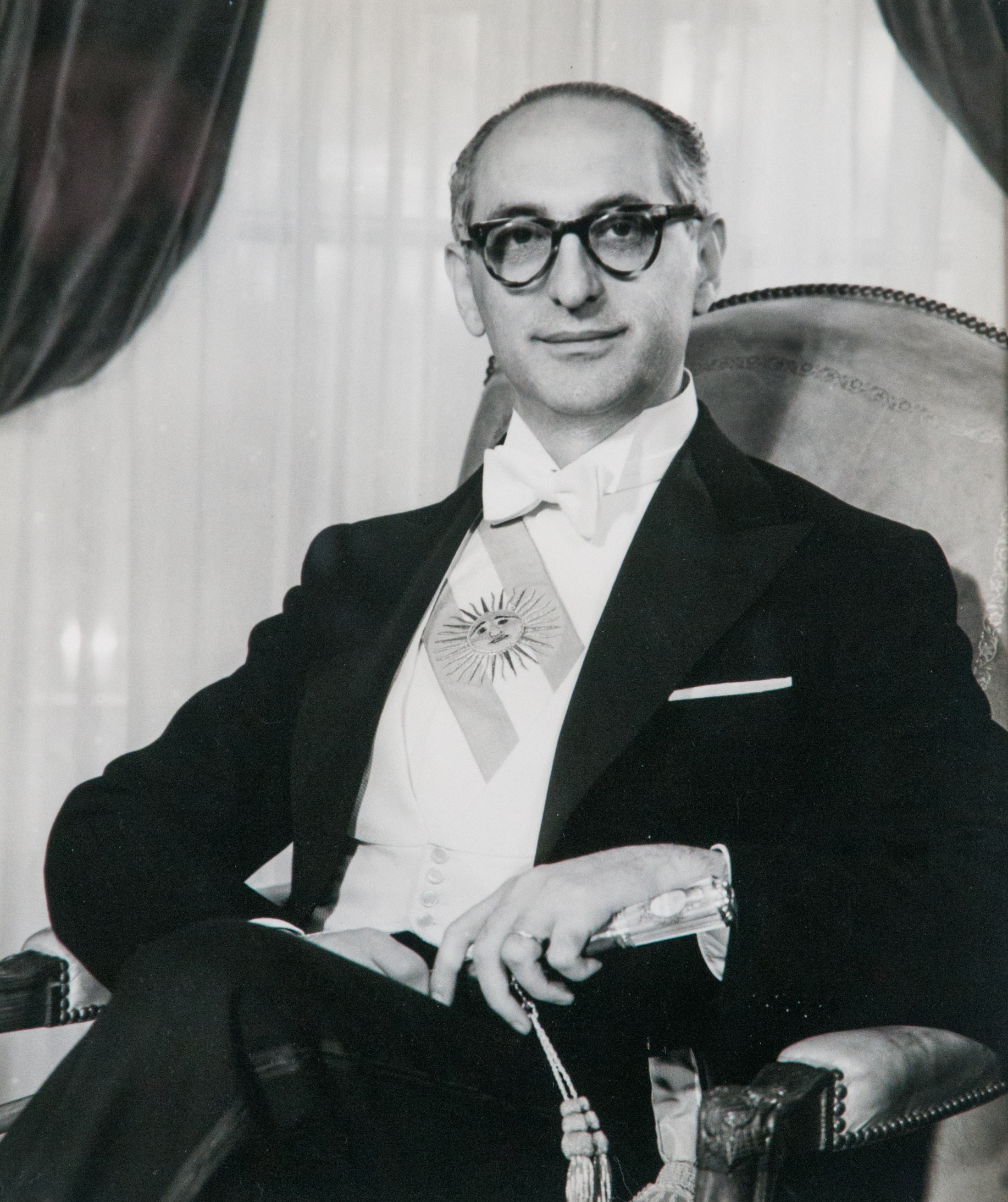Arturo Frondizi
 Arturo Frondizi Ércoli (Paso de los Libres, October 28, 1908 – Buenos Aires, April 18, 1995) was an Argentine lawyer, journalist, teacher, statesman, and politician. He was elected president of Argentina and governed from May 1, 1958, to March 29, 1962, when he was overthrown in a military coup. His government was characterized by its strong developmentalist policies (inspired by Rogelio Frigerio), that was less promoted by the State and more oriented to the development of heavy industry as a consequence of the entry of multinational companies.
Arturo Frondizi Ércoli (Paso de los Libres, October 28, 1908 – Buenos Aires, April 18, 1995) was an Argentine lawyer, journalist, teacher, statesman, and politician. He was elected president of Argentina and governed from May 1, 1958, to March 29, 1962, when he was overthrown in a military coup. His government was characterized by its strong developmentalist policies (inspired by Rogelio Frigerio), that was less promoted by the State and more oriented to the development of heavy industry as a consequence of the entry of multinational companies.A member of the Unión Cívica Radical (UCR) from the 1930s, Frondizi was one of the leaders who revived that party in the 1940s by founding the Intransigence and Renewal Movement, which opposed the military's role in politics. In 1946, he became national deputy for the city of Buenos Aires and unsuccessfully ran for vice president in the 1951 elections. After the Revolución Libertadora that overthew President Juan Perón in 1955, Frondizi led the radical faction within the UCR that criticized the dictatorship against the faction led by Ricardo Balbín, which was closer to it. This led to the split of the party and the formation of the Intransigent Radical Civic Union (UCRI). Frondizi and Balbín faced off in the 1958 presidential elections with Peronism banned, and Frondizi won by a landslide, thanks to an agreement he or his entourage made with Perón, under circumstances that remain unclear.
Frondizi's labor, oil and education policies sparked sharp conflicts, with large demonstrations and strikes by the labor and student movements, as well as numerous attacks against the government. Frondizi responded by signing the Conintes Plan, which placed protesters under the jurisdiction of military tribunals and prohibited strikes. His foreign policy sought closer relations with the United States under John F. Kennedy, but maintained an independent line, supporting the Cuban Revolution, receiving Fidel Castro in Buenos Aires, and even meeting secretly with Che Guevara to try to mediate conflicts between the United States and Cuba, without success. He deepened international relations with Asian countries by making his first presidential visit to Indonesia, India, and Israel, and signed economic agreements with the Soviet Union. Following repeated pressures from the military, Frondizi was overthrown by a coup on March 29, 1962. He was detained by the military and prevented from participating in the 1963 elections.
During the National Reorganization Process, Frondizi maintained a wait-and-see attitude toward the military regime, while also being critical of some of the economic measures adopted by the regime. During the Falklands War in 1982, Frondizi and Raúl Alfonsín were the exception in the Argentine political landscape in opposing the conflict.
On April 18, 1995, Frondizi died of natural causes at the age of 86 in Buenos Aires. Provided by Wikipedia
